Suaram - 30 years of defending human rights in M'sia
COMMENT | Suaram was born under the shadow of the ISA. Detention-without-trial has been the favourite tool of repression used by the Malaysian state to arrest and detain persons indefinitely without trial ever since its legislation in 1960. Under the rule of Prime Minister Dr Mahathir Mohamad from 1981, authoritarian measures have included detention without trial, restrictions on the mass media, the assault on the judiciary in 1988, and the centralisation of power in the executive. "Operation Lalang" in October 1987 produced an unprecedented coalition of democratic forces that emerged to fight for the release of the detainees. It also ignited a new effort among families of the detainees and their support group to provide support for the detainees as well as to campaign for their release. The comradeship among the families and their supporters among the NGOs was crucial in sustaining the anti-ISA campaign. The legacy of this support group and its working method provided the motivating force for the formation of Suaram in 1989.
We believe that to make democracy work, we have to actively step up the demands from outside Putrajaya and Parliament; to empower citizens through the process of participation, realising our rights through direct action and solidarity with other progressive organisations. True democracy involves more than just periodic elections. It is about rebuilding society by developing basic values of autonomy, solidarity and responsibility for life and for future generations. Our commitment to sustainable development goes beyond pious hopes that greedy developers and the state will initiate mitigative measures to unsustainable projects as was seen in the Bakun and the Sungai Selangor dams, land reclamations and deforestation for plantations. The practice of real democracy involves full citizens’ participation, including mobilising opposition to all forms of environmental destruction.
Suaram actively intervenes to support victims and their families when their basic rights have been violated in such cases of arbitrary arrest and detention, forced evictions and abuse of police powers. While victims of state oppression and police abuse include the broad masses in Malaysia, marginalised communities such as the urban poor, estate workers and indigenous people tend to bear the brunt of human rights violations. Suaram releases "urgent appeals" during such exigencies; coordinates "urgent arrest teams" to monitor and assist those who have been arrested during peaceful assemblies; arranges legal assistance, media publicity and referral services.
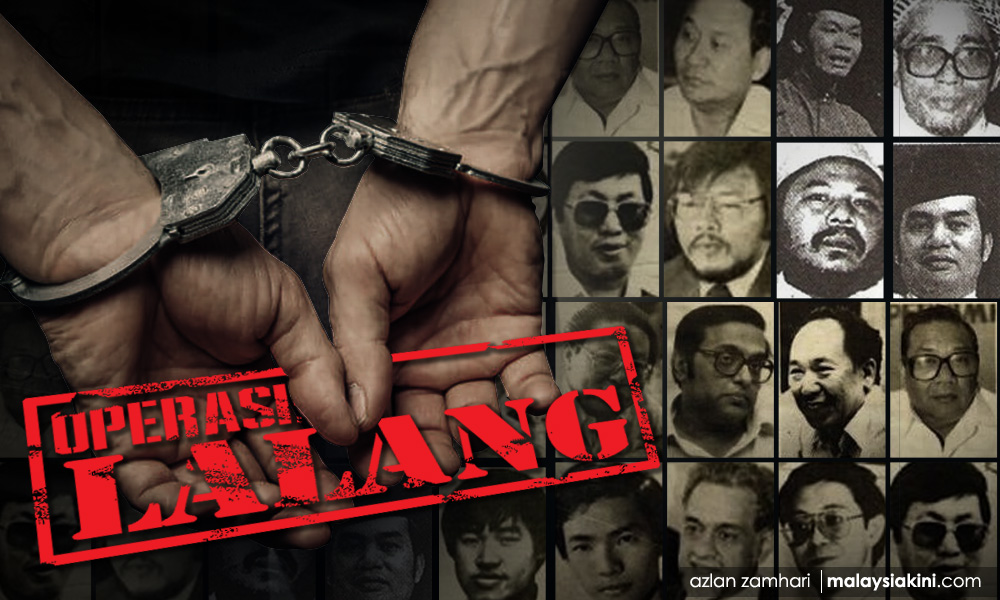
Suaram records all abuses of human rights through networking with other NGOs. We specialise in documenting violations of civil and political rights. These documents are published in periodic updates on our website. The monitoring and documentation found in Suaram’s publications are important contributions to human rights education and awareness in Malaysia. Today, Suaram is still the only human rights organisation in Malaysia that publishes a comprehensive human rights report every year without fail. The annual Suaram Malaysian Human Rights Report is both detailed and non-partisan and keenly awaited every year by local as well as foreign human rights watchers. This is remarkable considering we are a non-governmental organisation employing just a handful of young activists and operating on a shoestring budget. Every year since 1999, in commemorating International Human Rights Day, the Suaram Human Rights Award is given to the community or group (not individual) that has exhibited outstanding courage and solidarity in defending or promoting human rights and also empowered their community in the process.
Despite the lack of funds for a coordinator to handle this “Green Desk”, Suaram managed to respond to urgent appeals on environmental issues such as the Bakun dam, the Selangor dam and the destruction of the Bukit Sungai Putih permanent forest and wildlife reserve. Suaram spoke out against the Bakun dam at the World Commission on Dams conference at Hanoi in March 2000 as well as the regional meeting on river management in Thailand in August 2000. Suaram with other NGOs also organised the "People before Profits (PBP)" conference in Kuala Lumpur in November 2000 to raise awareness about sustainable development, environmental protection and the rights of communities in development. The conference brought together communities affected by so-called “development projects” and developed a consensus and common platform against unsustainable and exploitative development.
To date, Suaram has facilitated some important consultations including, the Malaysian Charter on Human Rights in 1994; the Malaysian Human Rights Report in 1998; the Peoples Tribunal against Police Brutality and the Second Asia-Pacific Conference on East Timor in 1996; the National Human Rights Commission as well as the Peoples’ Democratic Front (Gagasan Demokrasi Rakyat) in 1998. Other initiatives include the May 1 coalition and many other campaigns to bring together NGOs on fundamental human rights issues. This concept of coalition-building that has been one of the core working methodologies of Suaram since its inception has been adopted by many civil society groups on various issues, including the Article 11 coalition, the Coalition Against Water Privatisation, the protest against the fuel price hike, the Free Trade Agreement, local councils non-accountability, the Anti-War Coalition, Freedom of Information, the Bersih Committee on Electoral Reform, etc. The massive demonstration against the ISA by the Anti-ISA Movement (coordinated by Suaram) on Aug 1, 2009, was a further testament to the success of years of campaigning by Suaram against this obnoxious law.
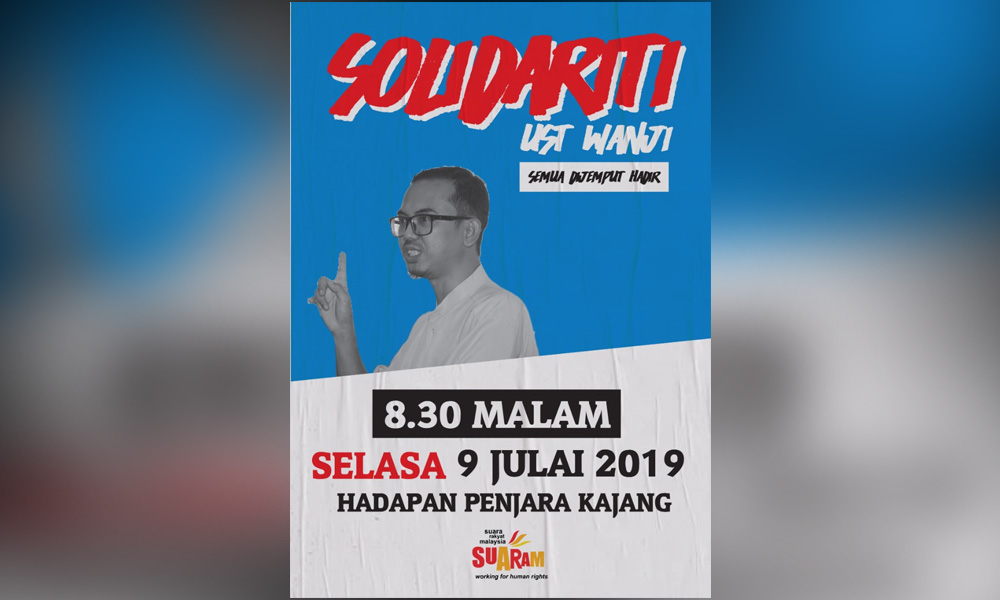
Human rights education and training has been an important part of Suaram work. Our target groups are students, youth, lawyers, journalists, urban settlers, workers, indigenous peoples and community groups. Our education and training programmes include Know Your Rights, Human Rights Workshops, Youth development.
Suaram believes in international solidarity and actively supports democracy and human rights movements in Southeast Asia and elsewhere in the world. Ultimately, supra-national pressure is necessary to force national governments to adhere to international human rights standards. To date, the Malaysian government has still not ratified many of the UN covenants, conventions and protocols. Suaram was a founding member of Forum-Asia, the Asian Forum for Human Rights and Development in 1993. We helped to organise the Second (and last) Asia Pacific Conference on East Timor in 1996 before its final liberation from Indonesia. When the conference was disrupted by a mob from the ruling BN coalition, more than half of Suaram’s secretariat and staff were among those arrested and detained in the police action. In September 1999, a regional coalition called Solidarity Campaign for Human Rights in Acheh was formed and Suaram was elected into the executive committee of the coalition. Suaram is staunchly anti-imperialist. During the US-led occupation of Iraq and Afghanistan and the Israeli atrocities in Gaza, Suaram was part of the “Stop the War Coalition” and participated in the protests against the US-led war.
In 2012, Suaram began to face an unprecedented barrage of intimidation and harassment from the government and its agencies as a result of the Scorpene public inquiry in France arising from Suaram’s complaint over suspected corruption in the purchase of the submarines in a Paris court. The government-controlled mainstream newspapers, News Straits Times, Berita Harian and Utusan Malaysia joined in this government chorus, accusing Suaram and other organisations including Bersih 2.0, Malaysiakini and Centre for Independent Journalism of being involved in a “Zionist plot to destabilise the government”. After seven months of wasting Suaram’s time and taxpayers' money, the taskforce produced nothing. On Jan 4, Suaram applied for a judicial review of the authority of the Registrar of Societies, pointing out that the ROS had no statutory authority over Suaram which is registered under the Companies Act 1950.
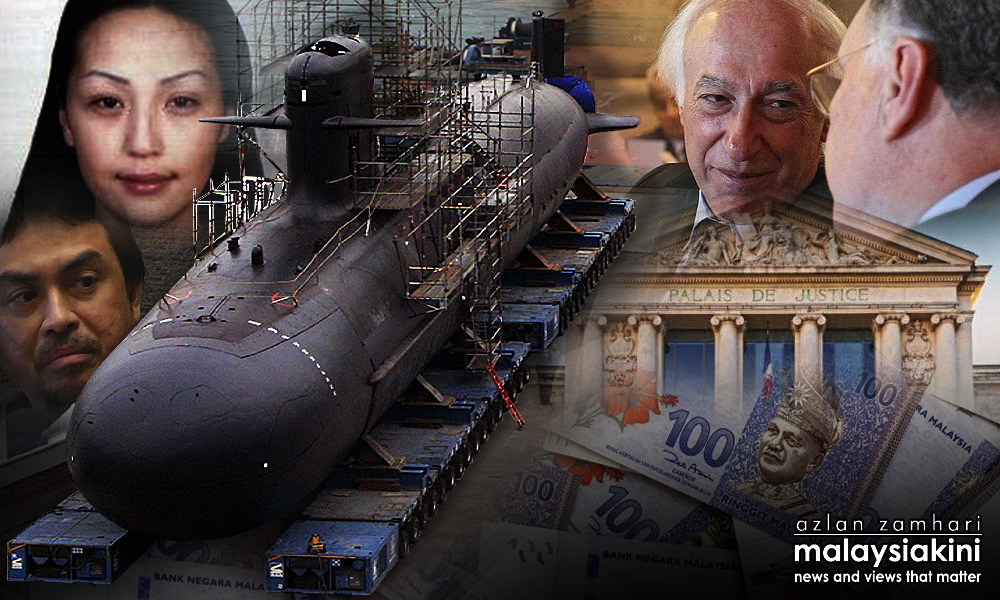
Then on Feb 28, the Attorney-General's Chambers told Suaram that "no further action" was planned. The ROS wrote to Suaram on March 6, withdrawing all its pending notices against Suaram. On Nov 13, 2013, Suaram was finally vindicated when the New Straits Times (NST) was forced to make a half-page apology on page three of its newspaper to Suaram, Bersih 2.0, Centre for Independent Journalism, and the Merdeka Centre. The NST admitted that its claims were "false and without foundation", the NST had "no proof whatsoever to substantiate any of the allegations", and that "the article ought not to have been published". Furthermore, the NST had to pay the legal costs of the lawsuit.
In 2011, the draconian ISA as well as the Emergency Ordinance (Public Order and Prevention of Crime) which allow for preventive detention were repealed. Suaram considers this a major milestone for its work as well as the work of its partner organisations in the Anti-ISA Coalition. To date, Suaram remains the only local NGO that systematically documents and publishes the current state of human rights in Malaysia through its annual human rights reports. This annual report has been published since 1998 and remains one of the key documents that is used by individuals, organisations and the diplomatic community to understand the human rights situation in Malaysia. We continue to defend Malaysians’ freedom of expression, the right to trial and to check abuses of power by the police and enforcement agencies. Suaram also contributes to research and publications on important Malaysian public policies and peoples’ history through the years, notably on arms spending and energy policies; racism and racial discrimination in Malaysia; May 13 and the Kampung Medan pogroms; the independence movement; People Before Profits; policing the Malaysian police; the ISA and "Operation Lalang" and Malaysian civil society demands for successive general elections.
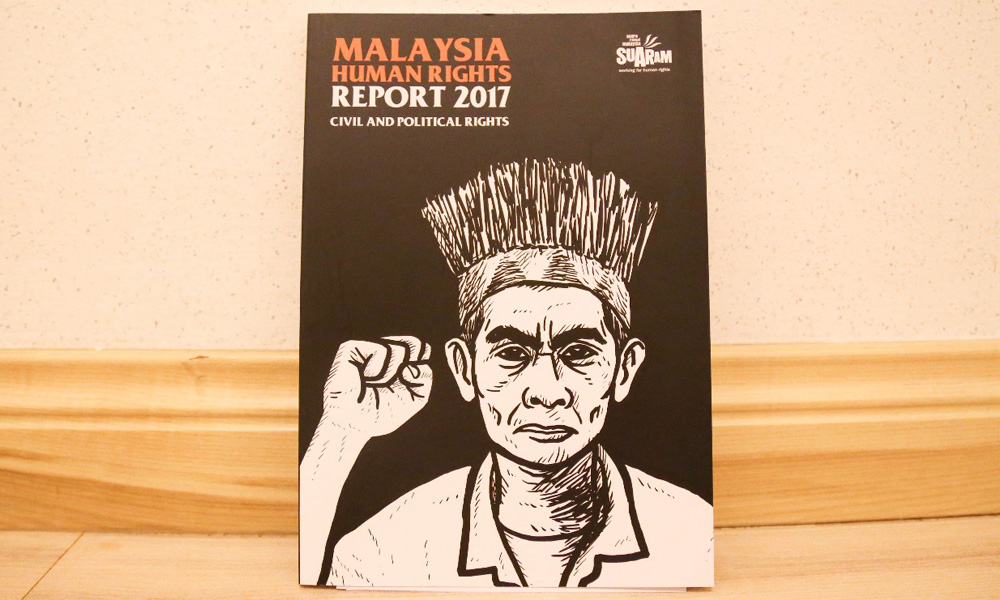
Human rights work involves a commitment that has sustained Suaram these thirty years with its activists, volunteers and supporters. Many of Suaram’s activists have been arrested at some point or other for standing up for our basic human rights and some have also been detained without trial. Through the years, we have made it a policy to train young activists to become human rights defenders. Suaram is strictly a non-partisan organisation. We do not hesitate in condemning all violations of human rights and social justice by the federal and state governments, whichever party is the transgressor.
As testimony to this commitment, we are now consulted by both local and international news agencies regarding current affairs, human rights and environmental issues in Malaysia. In its thirty years of existence, we believe Suaram has made a big difference to Malaysian society. With the continued support of human rights defenders, we will endeavour to reclaim our rights, to strengthen all these areas of human rights work, to broaden human rights education among Malaysians and to meet the challenges of rapidly changing political and economic developments in Malaysia, the region and the rest of the world.
KUA KIA SOONG is Suaram adviser. The above was his speech at the 30th-anniversary function of the human rights watchdog NGO in Kuala Lumpur yesterday.
The views expressed here are those of the author/contributor and do not necessarily represent the views of Malaysiakini.
RM12.50 / month
- Unlimited access to award-winning journalism
- Comment and share your opinions on all our articles
- Gift interesting stories to your friends
- Tax deductable
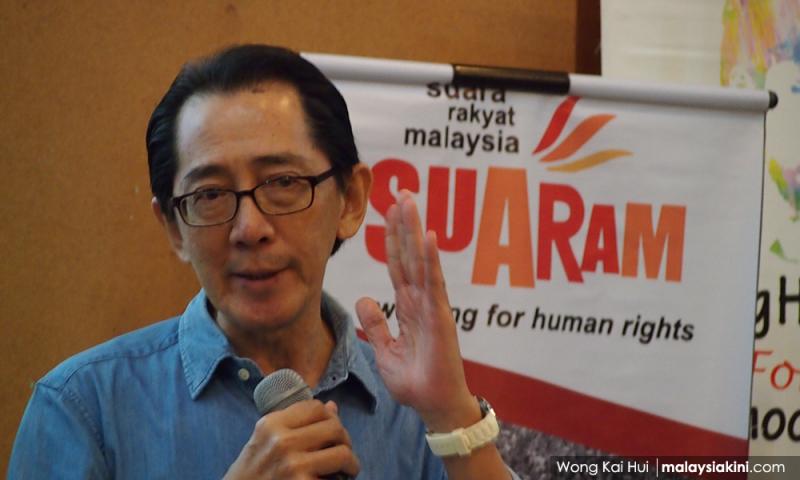
 Kua Kia Soong
Kua Kia Soong